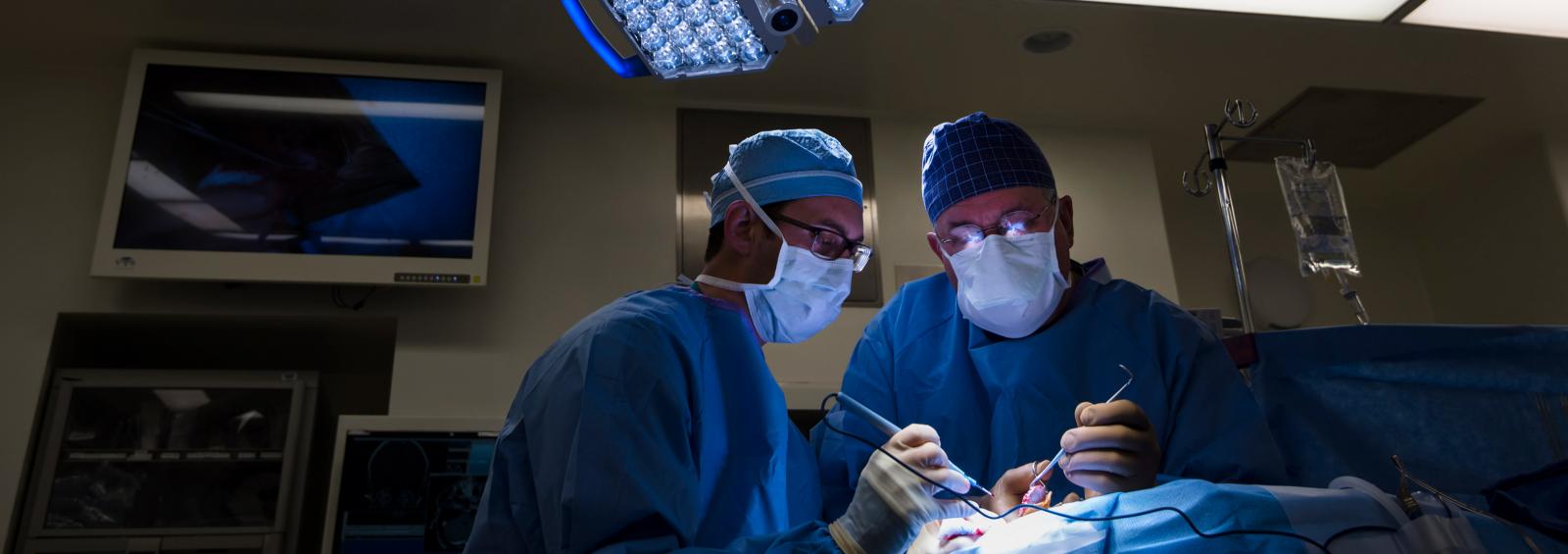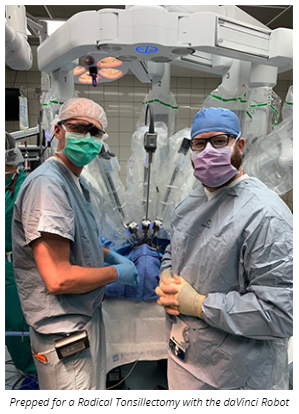Tinnitus or Sound Sensitivity? Here's When to Seek Help from a Hearing Clinic
Tinnitus or Sound Sensitivity? Here's When to Seek Help from a Hearing Clinic
Blog Article
Checking out the Field of Otolaryngology: What to Anticipate When You Seek Advice From an ENT
Otolaryngology, frequently described as ENT, includes the medical diagnosis and treatment of nose, throat, and ear conditions. For those experiencing associated issues, consulting an ENT professional can provide quality and relief. Understanding what to anticipate during such consultations is vital for reliable communication and treatment. This introduction will certainly lay out crucial elements of the ENT experience, including common reasons for brows through and the procedures associated with medical diagnosis and therapy.

Comprehending Otolaryngology: A Review
Otolaryngology, commonly described as ENT (Throat, ear, and nose) medicine, is a customized branch of medication that focuses on the diagnosis and therapy of conditions affecting these important areas of the body. This field encompasses a wide array of disorders, including those pertaining to hearing, equilibrium, respiratory feature, and speech. Otolaryngologists are trained to handle both clinical and medical therapies, using sophisticated methods and technologies. Their proficiency expands beyond typical conditions, attending to concerns such as allergic reactions, sinus infections, and hearing loss. In addition, they play a vital function in the management of head and neck cancers, supplying thorough treatment customized to individual client needs. Generally, otolaryngology stays vital for keeping health and wellness and lifestyle in damaged people.
Typical Factors to See an ENT Expert
Several individuals look for the proficiency of an ENT specialist for a variety of reasons, mirroring the varied nature of conditions that influence the throat, ear, and nose. Common concerns include persistent sinus problems, which often brings about consistent nasal congestion and facial discomfort. Allergies and their associated symptoms, such as itching and sneezing, likewise motivate visits to these experts (Otolaryngologist). Hearing loss, whether sudden or steady, is another considerable factor for appointment. On top of that, people might look for evaluation for throat problems, consisting of consistent hoarseness or swallowing difficulties. Sleep apnea, identified by disturbed breathing throughout sleep, is often resolved by ENT specialists also. Each of these conditions highlights the value of specialized treatment in taking care of complicated ENT-related health concerns
Preparing for Your ENT Consultation
When preparing for an ENT consultation, it is important to gather appropriate information and take into consideration any kind of certain issues. Individuals should put together a detailed clinical background, consisting of previous ear, nose, or throat concerns, surgeries, and current medicines. Recording signs and symptoms-- such as frequency, period, and severity-- can supply beneficial understandings for the ENT professional. Furthermore, individuals ought to prepare a list of concerns they wish to ask, making certain that all problems are dealt with during the go to. Bringing along any type of pertinent clinical records or test outcomes can better help the ENT in recognizing the individual's problem. Lastly, clients should verify their consultation details, consisting of location, time, and date, to decrease any kind of final complication. Appropriate prep work can boost the effectiveness of the appointment and result in better end results.
What to Anticipate Throughout the Examination
As the consultation starts, the individual can anticipate to participate in an extensive conversation with the ENT expert about their symptoms and medical history. The specialist will certainly ask about the period, regularity, and extent of symptoms such as hearing loss, nasal blockage, or aching throat. Additionally, the individual's previous clinical conditions, medications, and any pertinent family members history will be assessed, helping the expert in developing a total understanding of the client's health and wellness. The ENT may additionally ask concerning way of living variables, such check here as exposure to toxic irritants or allergens. This open dialogue establishes a foundation for the assessment, ensuring that the patient's worries are dealt with and setting the stage for any kind of required evaluations or referrals for treatment.
Diagnostic Examinations and Treatments in Otolaryngology
An array of diagnostic tests and procedures are important in otolaryngology to properly review and detect problems affecting the nose, ear, and throat. Common tests consist of audiometry, which measures hearing function, and tympanometry, assessing middle ear pressure. Nasal endoscopy enables visualization of the nasal flows and sinuses, while laryngoscopy takes a look at the throat and singing cords. Imaging techniques, such as CT scans and MRIs, give detailed sights of head and neck frameworks. Allergic reaction screening might additionally be conducted to identify triggers for sinus or respiratory issues. These analysis tools allow ENT professionals to establish an extensive understanding of people' problems, ensuring customized and reliable administration strategies. Correct diagnosis is crucial for effective therapy results in otolaryngology.
Treatment Alternatives Provided by ENT Specialists
ENT professionals supply a variety of treatment alternatives customized to deal with particular problems affecting the throat, nose, and ear. These therapies vary from conservative strategies, such as medication and way of living alterations, to even more intrusive procedures. Allergies may be taken care of with antihistamines or immunotherapy, while persistent sinusitis could require nasal corticosteroids or sinus surgical treatment. For hearing loss, ENT specialists usually advise listening device or medical treatments like cochlear implants. In situations of throat disorders, options can include speech therapy or operations to eliminate blockages. Additionally, they may give advice for managing sleep apnea, consisting of the usage of CPAP tools or surgical interventions. On the whole, the objective is to enhance patients' high quality of life through individualized treatment and efficient therapy approaches.
When to Look For Follow-Up Care With an ENT
Recognizing when to look for follow-up care with an ENT specialist is essential for managing recurring symptoms or difficulties connected to nose, ear, and throat conditions. Individuals need to think about scheduling a follow-up appointment if signs continue despite preliminary therapy, such as persistent ear discomfort, nasal congestion, or throat pain. Changes in hearing, balance issues, or uncommon nasal discharge might likewise call for further examination. Furthermore, if an individual experiences side effects from recommended medicines or has gone through a procedure, follow-up care is very important to check healing and resolve any type of problems. Timely appointments can assure effective administration of conditions, avoid possible problems, and supply satisfaction relating to one's health and wellness. Seeking follow-up treatment promotes proactive health and wellness management in otolaryngology.
Frequently Asked Concerns

What Certifications Should I Look for in an ENT Expert?
When seeking an ENT expert, one need to seek board qualification, pertinent experience, and strong individual reviews. Additionally, effective interaction skills and a compassionate approach can significantly enhance the general treatment experience.
How Do I Pick the Right ENT for My Demands?
Selecting the right ENT specialist includes reviewing their certifications, experience, and patient reviews (ENT Clinic). It is necessary to consider their interaction design and strategy to therapy, guaranteeing they align with the individual's specific health needs and preferences
Are There Any Type Of Dangers Related To ENT Procedures?
The threats linked with ENT treatments may include infection, blood loss, anesthesia problems, and prospective damage to surrounding structures. Individuals ought to discuss these dangers with their doctor to recognize specific concerns and assurance notified decisions.
Just How Can I Handle Stress And Anxiety Before My ENT Consultation?
To take care of anxiousness prior to an appointment, individuals can practice deep breathing exercises, imagine favorable outcomes, prepare concerns ahead of time, and look for support from close friends or family, cultivating a feeling of peace of mind and peace.
What Should I Do if I Experience Negative Effects From Therapy?
If adverse effects from therapy happen, the person must quickly report them to their healthcare company. Adjustments to therapy or added treatments may be necessary to ensure safety and effectiveness in managing their condition - Otolaryngologist. As the assessment begins, the client can anticipate to engage in a detailed conversation with the ENT specialist concerning their signs and symptoms and clinical history. These diagnostic devices enable ENT professionals to create a complete understanding of individuals' conditions, making sure tailored and reliable monitoring plans. ENT experts use a range of therapy options customized to deal with specific conditions impacting the nose, throat, and ear. When seeking an ENT professional, one must look for board accreditation, relevant experience, and solid client evaluations. Selecting the best ENT professional entails reviewing their credentials, experience, and person evaluations
Report this page